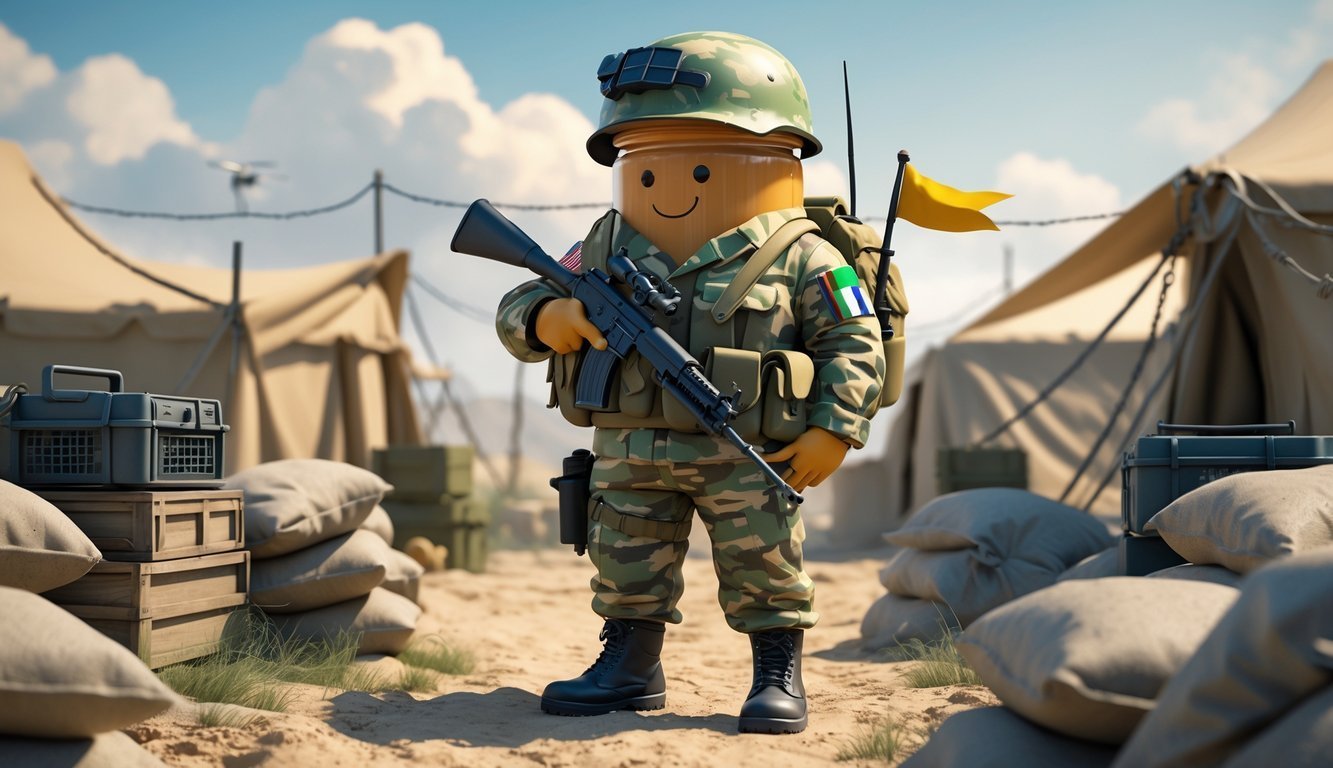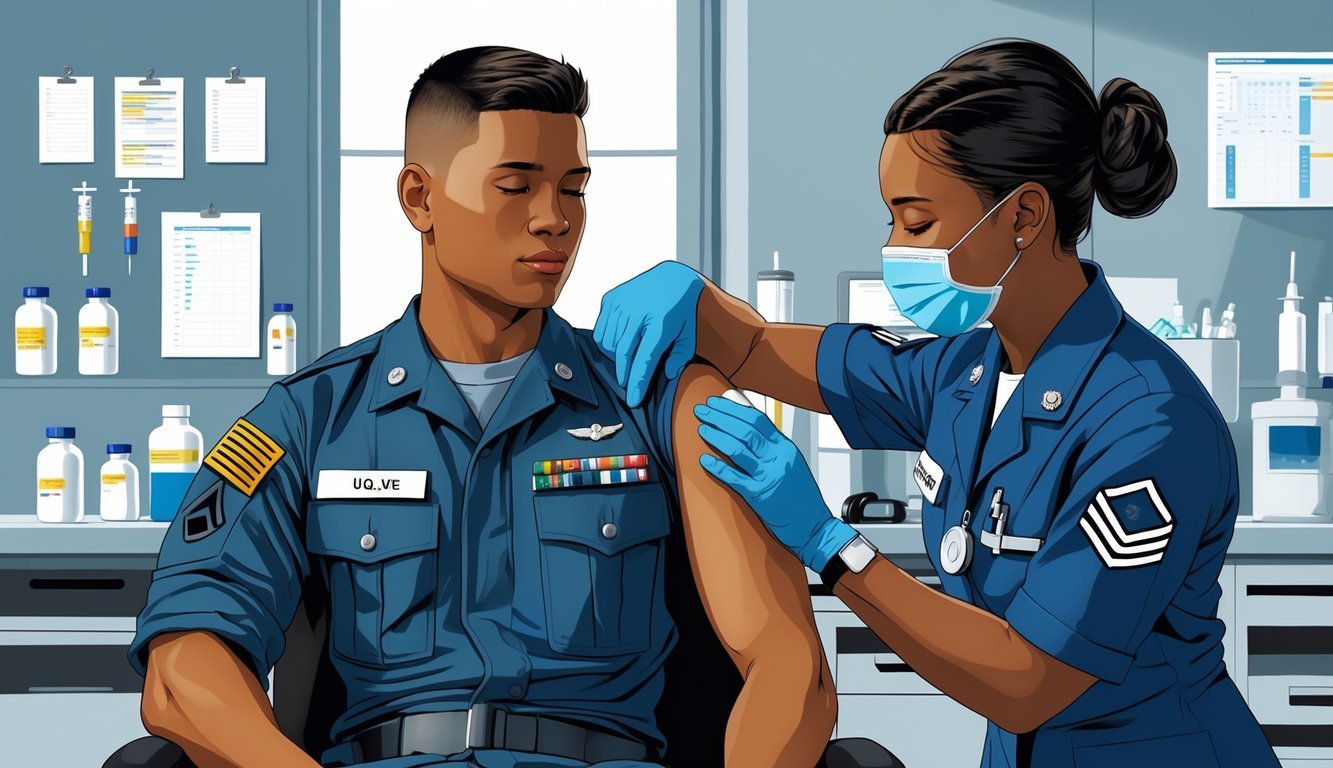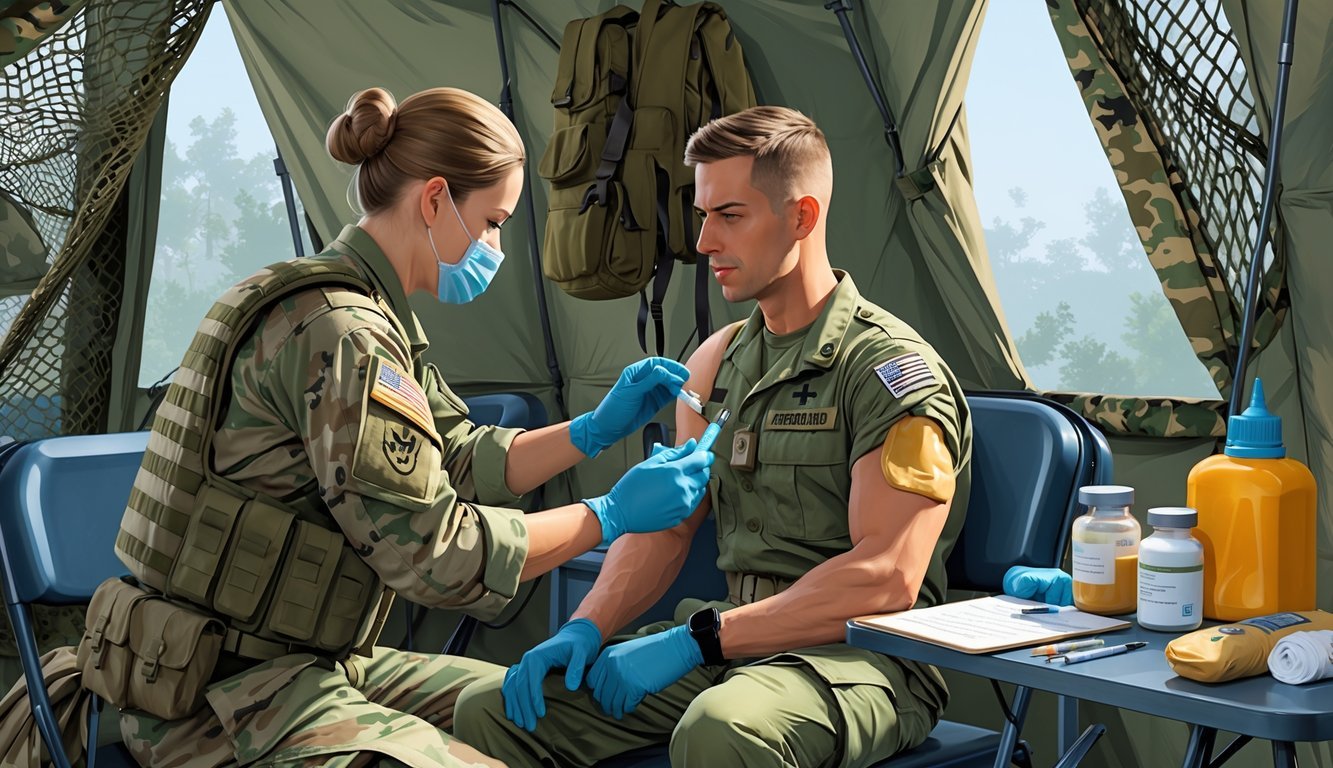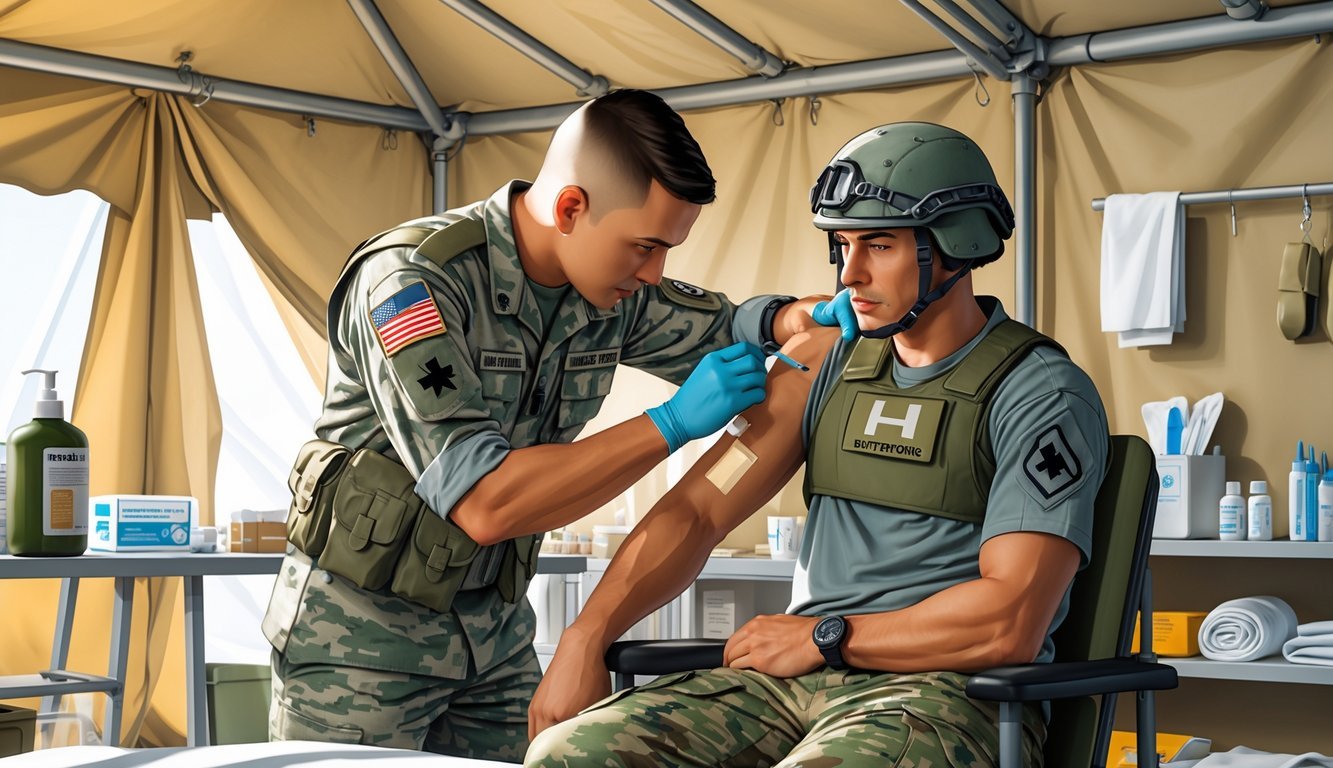PsychNewsDaily Publishers
100 Summit Drive
Burlington, MA, 01803
Telephone: (320) 349-2484
PsychNewsDaily Publishers
100 Summit Drive
Burlington, MA, 01803
Telephone: (320) 349-2484
The peanut butter shot is a thick penicillin vaccine for Army recruits, protecting against bacterial infections like strep throat during basic training.

If you’re heading into basic training, you’ll probably hear someone mention the “peanut butter shot.” This military injection is actually a thick penicillin vaccine. Most Army recruits get it to help protect against certain infections. The nickname comes from the shot’s sticky, thick consistency—it really does feel a bit like peanut butter when it goes in.
People know the shot for being a little uncomfortable. That’s mostly because of the big needle and the weird, gooey texture.
But honestly? Most recruits say it’s over in a flash, and it helps keep you healthy during training. Knowing what’s coming can take some of the edge off when it’s your turn.
A little info about the peanut butter shot can go a long way in calming your nerves about military vaccinations. It’s just one of those common Army things that help keep everyone safe while you’re getting started.

If you join the Army, you’ll probably get the “peanut butter” shot during basic training or boot camp. The Army gives it to help protect you from bacterial infections and keep everyone healthy during military training.
Army staff give new recruits the peanut butter shot to help prevent bacterial infections, especially strep throat. Strep spreads fast when a bunch of people live close together, like in barracks.
By stopping that, the Army keeps everyone healthy and training on schedule. If too many recruits get sick, the whole group’s training can get thrown off.
The peanut butter shot uses a form of penicillin called Bicillin. Bicillin is thick and slow-releasing, made from benzathine benzylpenicillin (penicillin G).
It fights bacterial infections by lingering in your body for quite a while. Medical staff use a 12-gauge needle to inject the medicine deep into your muscle.
That thick, sticky consistency is why people started calling it the “peanut butter” shot. The military has relied on this type of penicillin for years because it works well at stopping infections early on.
People started calling it the “peanut butter” shot because of how thick and sticky the Bicillin feels when it’s injected. Some recruits say it’s like having smooth peanut butter pushed into your muscle.
The slang just caught on among service members. Even though the name sounds funny, the shot serves a serious purpose—it helps stop infections from spreading in crowded living spaces.
Knowing about it ahead of time can make the whole thing a little less nerve-wracking.

When you get the peanut butter shot in the military, you’ll go through a specific injection process. There are some common side effects, and a few health risks you should know about.
This shot is part of your first medical care at boot camp and can mess with your movement for a couple of days.
You’ll usually get this shot during your first processing week. It happens in a medical exam room.
A medical professional or sometimes even a drill sergeant will get you ready. They use a thick liquid called Bicillin, and the shot goes right into your butt cheek—usually the upper, outer part.
They clean your skin first. The needle’s bigger and longer than most vaccines because the medicine is so dense.
You’ll probably feel a quick pinch or sting. The thick fluid spreads slowly in your muscle, which is an odd sensation.
Recruits in the Navy, Marines, Air Force, and other branches get this shot too. If you have allergies, the medical team will check and make adjustments.
The idea is to boost your immune system against infections that are common in military life.
After you get the shot, you’ll probably feel some soreness and pain at the injection site for a few days. That’s from the thick medicine and the big needle.
Some people notice swelling, redness, or a small, hard lump—a red bump—on their buttocks. Moving around, like sitting or running, can be uncomfortable because the muscle is sore.
Some recruits say it feels like a really deep bruise. You might feel a little limited in how you move at first.
Other side effects can include slight nausea or dizziness, but those don’t happen to everyone. Usually, symptoms get better with rest and maybe some over-the-counter pain meds.
If you get anything serious, like vomiting or skin blisters, you should tell the medics right away. That’s rare, though.
The peanut butter shot, like any injection, comes with some risks—especially because it uses a thick antibiotic. There’s a small chance you could get an infection at the injection site, which might cause redness, swelling, or something worse like skin peeling or blisters.
If the injection isn’t done right, there’s a rare risk of tissue damage, like necrosis or even gangrene. Those are serious and need emergency treatment to prevent amputation or permanent paralysis.
Medical staff usually check for allergies to Bicillin before giving the shot. That helps avoid allergic reactions.
But if you suddenly feel severe swelling, trouble breathing, or weakness, let the medics know immediately.
Just follow instructions and speak up if something feels wrong. That’s the best way to stay safe during this routine part of Army life.

You might wonder what the peanut butter shot actually does, who gets it, or why it has such a weird name.
Let’s clear up some of those questions, like side effects, how long it lasts, and if the Army still uses it.
The peanut butter shot protects you from bacterial infections. It helps prevent stuff like strep throat and other illnesses. The shot is usually penicillin-based.
You might feel soreness or pain where you got the shot. Mild swelling or redness can show up too. If you’re allergic to penicillin, serious reactions are possible but rare.
Yes, all recruits—male and female—usually get this shot unless they have a known allergy. It’s part of the standard vaccination process in basic training.
The shot’s protection can last anywhere from several weeks to a few months. It depends on your immune system and the exact vaccine. The main goal is to protect you while you’re living in close quarters.
People started calling it that because the injection feels thick and sticky, kind of like peanut butter. The nickname just stuck—it’s a way for soldiers to describe the weird sensation.
Nope, the shot’s still around in the military, even though some rumors say otherwise.
Different branches might have their own vaccine rules, but recruits usually get penicillin shots like this.